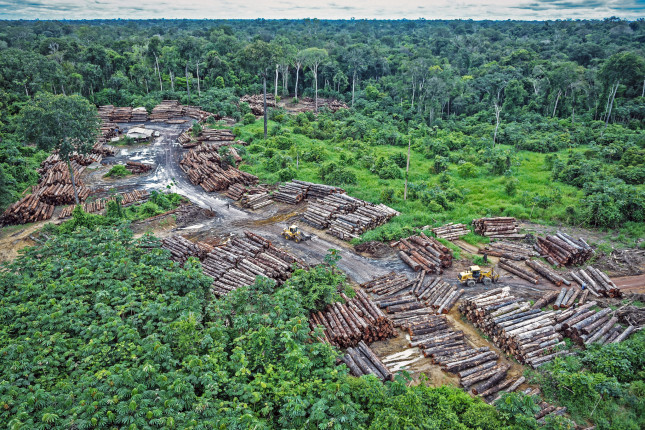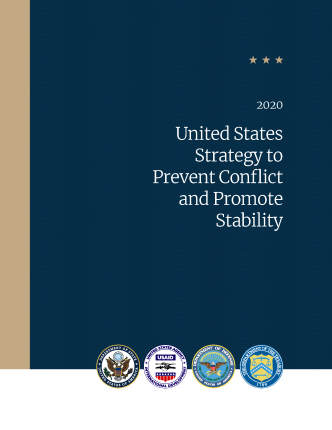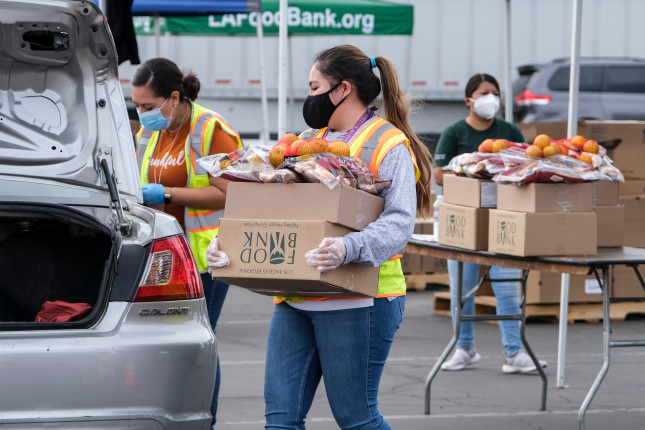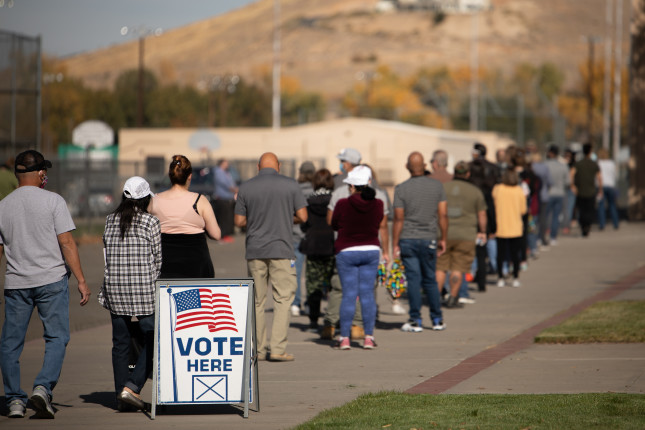-
Black Maternal Health Week 2021 Achieves Historic White House Recognition
›
“This week is Black Maternal Health Week, and make no mistake, Black women in our country are facing a maternal health crisis. Black women are two to three times more likely to die in connection with childbirth than other women. We know the primary reasons why—systemic racial inequities and implicit bias,” said Vice President Kamala Harris at a White House Roundtable she hosted with Ambassador Susan Rice in honor of Black Maternal Health Week. The event was the first event of its kind at the White House—Black women who have experienced loss and complications during pregnancy, childbirth, and postpartum were invited to share their experiences and their work in Black maternal health advocacy and research.
-
Going Big on Climate: Opportunities and Challenges Facing the New Administration
›
“With climate change, we can make no small plans—we need to go big,” said Lieutenant General Wallace Gregson (ret.), former Assistant Secretary of Defense for Asian and Pacific Security Affairs, during a recent event co-hosted by the Environmental Peacebuilding Association and Wilson Center on opportunities and challenges facing the new administration relating to the environment, peace, and conflict.
-
Climate Change Front and Center in U.S. and Brazil Relations in Biden-Bolsonaro Era
›
As the warm relationship between U.S. President Donald Trump and Brazil President Jair Bolsonaro comes to an end with the former’s electoral defeat in November 2020, the next two years (Bolsonaro is up for reelection in 2022) could prove to be strenuous for the bilateral relations of the two largest economies in the Western Hemisphere. President-elect Biden has signaled that combatting climate change will be a priority in his administration. Now, without the cover of a U.S. administration that denies climate change, Brazil could become further isolated in international environmental politics. All of this complicates the political realities for President Bolsonaro, whose political survival depends on maintaining his coalition of fanatical supporters, the agricultural sector, and former and current members of the military. Still, given U.S. concerns about Chinese influence in the region, the Biden-Bolsonaro relationship could prove to be low-key and practical.
-
What Does a Biden-Harris White House Mean for Women and Girls? Everything.
›
The significance of the Biden-Harris administration for the world’s women and girls cannot be overstated. The current status of women and girls is grim. The COVID-19 pandemic and four years of dangerous policies designed to strip women and girls of their reproductive and economic autonomy and punish them—first for their biology, and second for their gender—have slowed and even reversed decades of progress toward gender equity. Systemic racism and policies meant to further exclude and disenfranchise minority communities have targeted women of color with tragic results.
-
New U.S. Global Fragility Strategy Recognizes Environmental Issues as Key to Stability
›
A new Global Fragility Strategy, released late last year by the U.S. Department of State, signals a growing awareness of the role that environmental issues play in fragility, conflict, and peace. According to the State Department’s Office of Foreign Assistance, in the last five years alone, “the U.S. government has spent $30 billion in 15 of the most fragile countries in the world.” These “large-scale U.S. stabilization efforts after 9/11 have cost billions of dollars but failed to produce intended results,” writes Devex’s Teresa Welsh. As a result, Congress passed into law in 2019 the Global Fragility Act, legislation that directed the Department of State to lead the development of a new 10-year Global Fragility Strategy that sets out a new U.S approach to conflict prevention and stabilization in fragile contexts.
-
Who’s responsible for feeding hungry people?
›
Historically, Americans have not been entitled to adequate, nutritious food when they are hungry, at least not at the expense of federal or state governments. Public food assistance programs are and have always been limited and supplemental and not designed to cover all nutritional needs. The effects of limited government engagement with hunger have disproportionately affected women and people of color and resulted in a patchwork system of assistance where charities and privately funded food banks attempt to fill gaps left by the government’s Supplemental Nutrition Assistance Program (SNAP) program.
-
“Climate is the Multilateral Challenge of the Moment”: Highlights from a Conversation on Climate Change, Multilateralism, and Equity
› “After a period of populist nationalism…multilateralism is back, and climate is the multilateral challenge of the moment,” said David Lammy, a member of Parliament for Tottenham in the United Kingdom and Shadow Secretary of State for Justice, in a recent 21st Century Diplomacy event, co-hosted by the Wilson Center and adelphi. The election of Joe Biden and Kamala Harris is not a “reset,” but rather a catalytic moment for the international community precisely because of the pandemic and consequences for the global economy, he said. When you look at who has been left behind in countries like the United States and United Kingdom, and globally, who is at risk climate impacts, it is “black and brown people suffering all over the planet, and that is a call to arms,” said Lammy.
“After a period of populist nationalism…multilateralism is back, and climate is the multilateral challenge of the moment,” said David Lammy, a member of Parliament for Tottenham in the United Kingdom and Shadow Secretary of State for Justice, in a recent 21st Century Diplomacy event, co-hosted by the Wilson Center and adelphi. The election of Joe Biden and Kamala Harris is not a “reset,” but rather a catalytic moment for the international community precisely because of the pandemic and consequences for the global economy, he said. When you look at who has been left behind in countries like the United States and United Kingdom, and globally, who is at risk climate impacts, it is “black and brown people suffering all over the planet, and that is a call to arms,” said Lammy. -
A Tale of Two Transitions: Education, Urbanization, and the U.S. Presidential Election
›
Rather than delve into issue opinion polling, or assess presidential campaign strategies, political demographers assume that political change is the predictable product of a set of mutually reinforcing social, economic, and demographic transitions, which can be tracked using data. But is this true in a country like the United States that has been in the advanced stages of these development transitions for decades? If these transitions are as important as demographers believe, could their variation among the 50 states explain the outcome of the recent U.S. presidential election? If so, what could they tell us about America’s electoral future?
Showing posts from category U.S..







 “After a period of populist nationalism…multilateralism is back, and climate is the multilateral challenge of the moment,” said David Lammy, a member of Parliament for Tottenham in the United Kingdom and Shadow Secretary of State for Justice, in a recent
“After a period of populist nationalism…multilateralism is back, and climate is the multilateral challenge of the moment,” said David Lammy, a member of Parliament for Tottenham in the United Kingdom and Shadow Secretary of State for Justice, in a recent 


